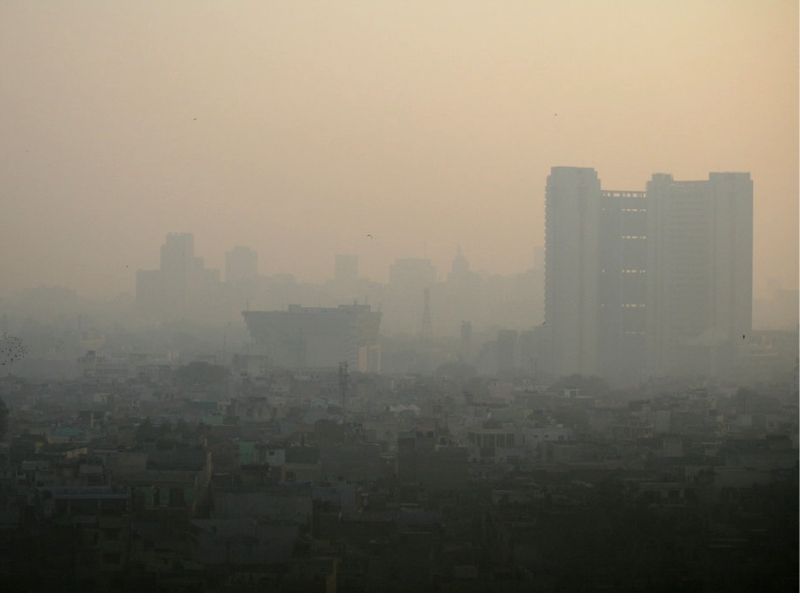The Bharatiya Janata Party has called for the closure of schools for students upto class V in the wake of the rising air pollution levels in the capital.
The Air Quality Index (AQI) in many parts of Delhi hit the ‘severe’ category. In the wake of this, the BJP has called on the Delhi government to shut all schools up to Class V.
BJP claimed that the Aam Aadmi Party (AAP) failed to address the pollution crisis that has led the city to become a ‘gas chamber’.
In a press conference, Delhi BJP President Virendra Sachdeva stated, “The AAP government must immediately close all schools up to Class V to protect children from hazardous air pollution.”
Sachdeva said that the Delhi government was “completely failing” to control pollution levels that had now hit hazardous levels (PM 2.5 levels surpassing 400 and PM 10 levels crossing 1,000, according to the BJP.) He said the BJP sought closure as children and senior citizens were the most affected by the poor air quality.
The Central Pollution Control Board (CPCB) Delhi said that the Air Quality Index (AQI) was recorded at 366 on November 13, which is categorised as hazardous.
The BJP leader also criticised the lack of government action to provide medical support for those affected by the pollution, urging the Delhi government to decide for distributing medication to protect citizens from the adverse health effects, PTI reports said.
Dr Rahul Mehra, National Representative of India for the UNESCO Chair for Global Health & Education on air pollution in Haryana “I strongly believe health education should be compulsory for children in their formative years, and towards this we have begun an experiment, and the initial results are encouraging, Haryana’s children deserve the same clean air as those in cities like Chicago, where AQI levels rarely exceed 50. But for our youth facing daily pollution levels upwards of 350 AQI, preventive health education can play a vital role in countering long-term health impacts and empowering the next generation to make informed health choices.”
Also read: Protecting children against air pollution
